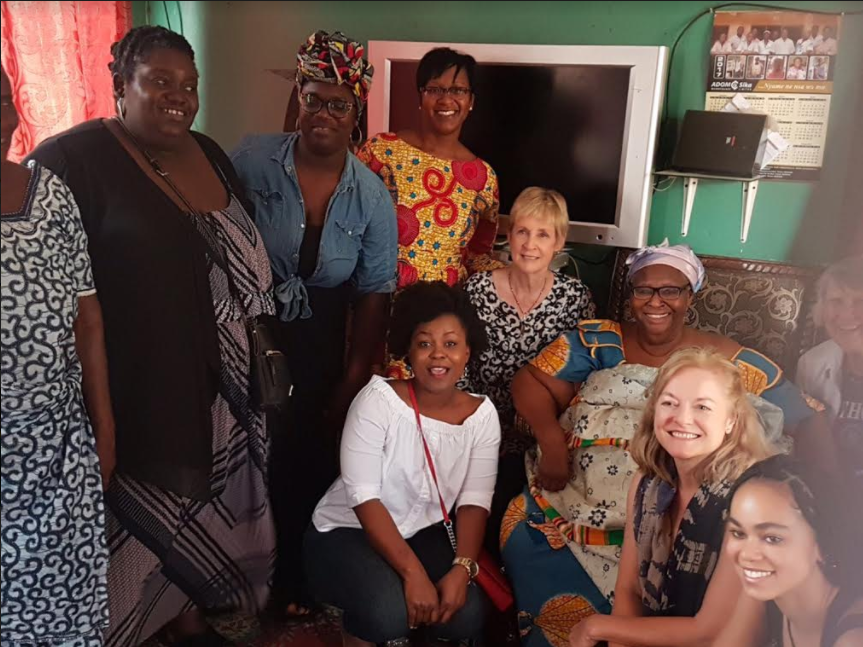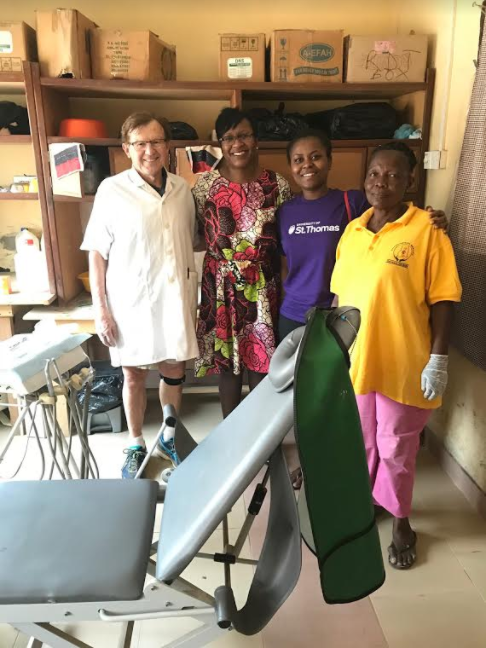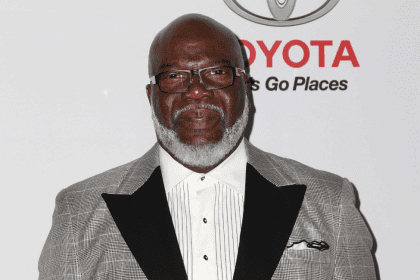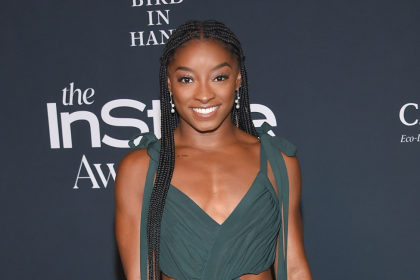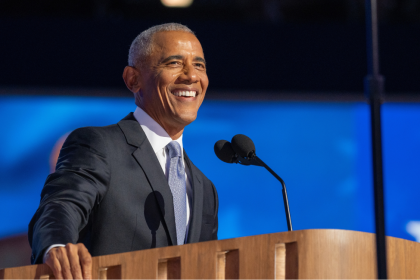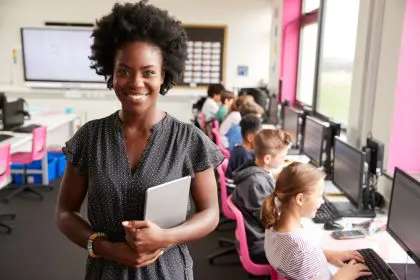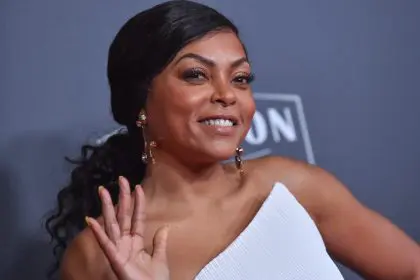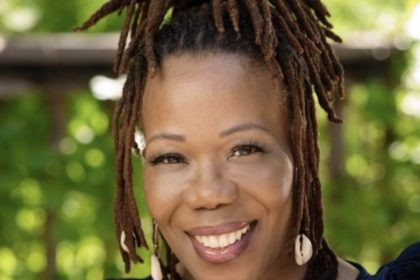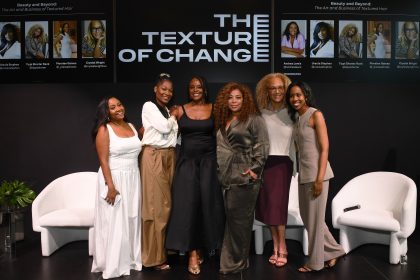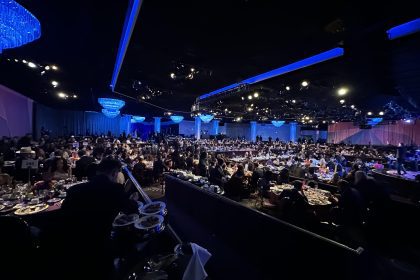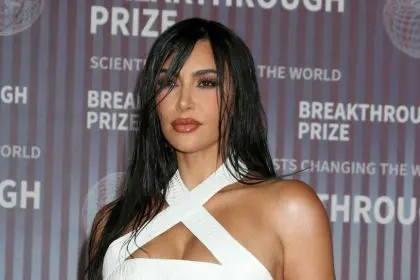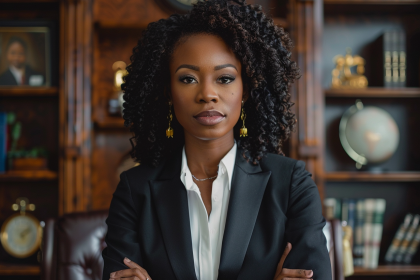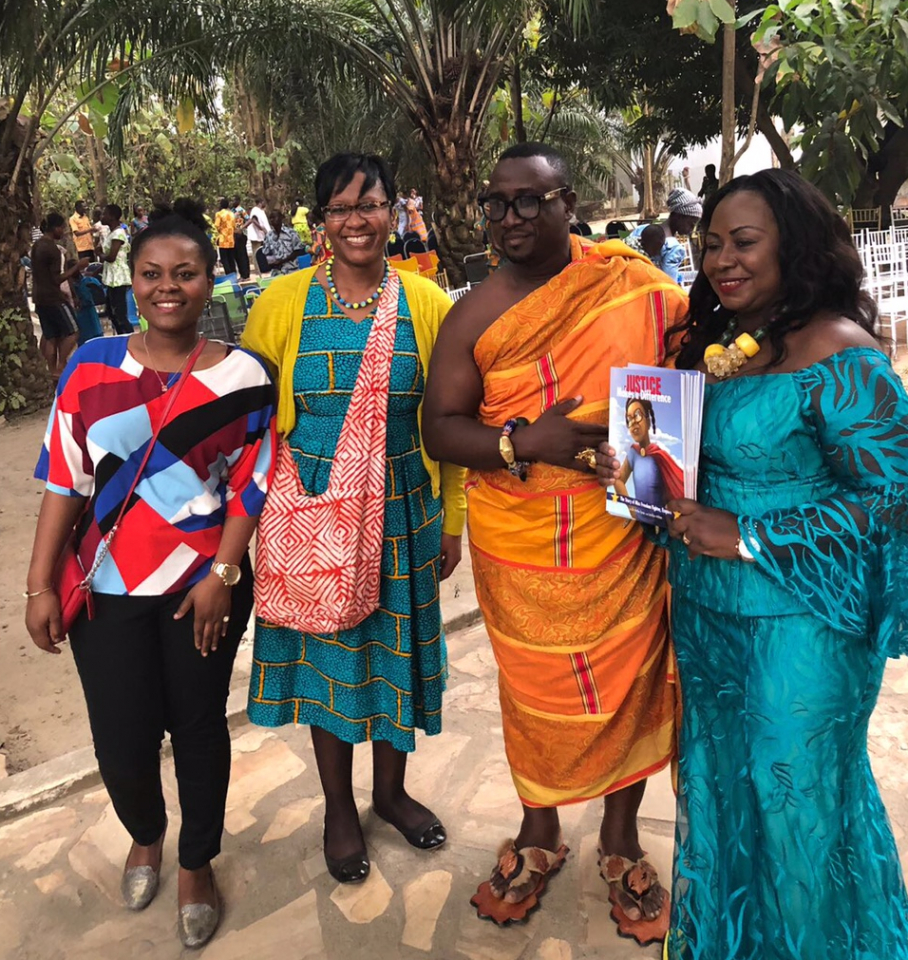
Dr. Artika Tyner is on a mission to support educational initiatives in Ghana, Africa and she is well on her way to making a major difference in the country. “Our nonprofit, Planting People Growing Justice Leadership Institute, partnered with Ghana Scholarship Fund to host a leadership workshop and youth town hall forum,” Tyner says of a recent visit to Ghana.
As education in Ghana is now free from K-12, Tyner works with organizations such as the Ghana Scholarship Fund to help to defray the cost of college education. “[The] Ghana Scholarship Fund, founded by Kathleen Hubbard Ismail, provides scholarships to high school and university for students from rural communities in Ghana, West Africa whose parents cannot afford to pay the required tuition fees,” Tyner goes on to say. (For more information, please visit: https://ghanascholarships.org/)
Dr. Tyner is not only talking the talk, she’s also walking the walk. On a recent trip to Ghana, she made a significant impact as she hosted an author signing in Senchi Ferry where she read her latest book, Justice Makes a Difference: The Story of Miss Freedom Fighter, Esquire and she also led an interactive workshop on leadership development. She was also able to inspire young people to discover the leader within themselves through the pursuit of academic excellence and the unveiling of each student’s limitless potential. And before she traveled back to the US, she donated her children’s book Justice Makes a Difference: The Story of Miss Freedom Fighter, Esquire books to Nana Ansah Kwao IV and Oheneyere Gifty Anti and the books will be added to the library collection at the Awo Dansoa reading project in Adumasa-Akwamu. Kwao IV is committed to building a “world class educational experience” which includes improving literacy rates and incorporating daily visits to the library into the curriculum.
Rolling out spoke with Tyner about her recent trip to Ghana. Check out the interview below where she shares her experiences.
Why are you taking books to children in Ghana?
I would like to share the gift of education with children in Ghana. Education opens the window of opportunities. Imagine a little girl who dreamed of becoming a lawyer. The odds were against her since she was the first in her family to attend college. Further, she did not have the financial means to pursue her educational goals. She overcame these roadblocks and became a civil rights attorney, educator, speaker, award-winning author, and entrepreneur. This is my story hence I can attest to the transformative power of education. Education provided me with the tools to make a difference in the global community. This journey began with reading. Through books, I have traveled the world from the coast of Ghana to Table Mountain in South Africa. Books also served as a source of inspiration.
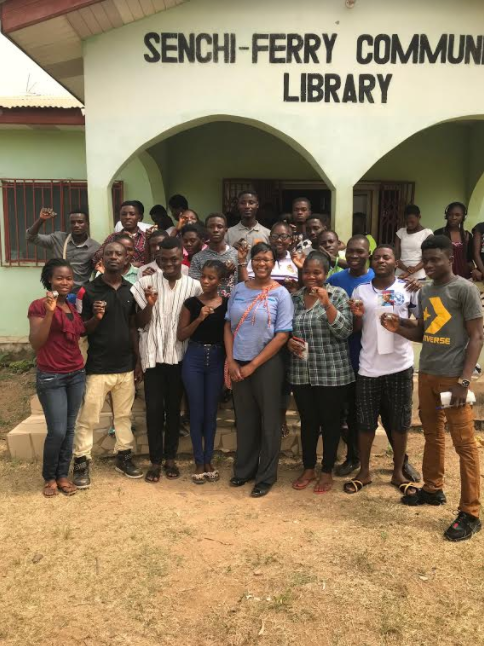
What are your goals for young scholars?
My goals for young scholars are to inspire them to lead and advance social change. I begin each discussion with the scholars by raising the question: “What is in your hands to make a difference in the world?” By raising this question, there is both a challenge and an opportunity.
- Challenge: The scholars can explore how they will leave the world a better place than how they found it.
- Opportunity: The scholars explore how they can leverage their gifts and talents for the betterment of society. This reminds them that young people are the future. I believe they will define the moral conscience of our nation. They have the power to move us closer to the essence of unity beyond the restraints of black or white, or rich or poor to the higher moral ground of freedom and justice for all.
What more can African Americans do to support the children in Ghana?
African Americans are an integral part of the future of Ghana. We can support the children in Ghana by:
- Supporting literacy and education programs– Nelson Mandela wisely stated: “Education is the most powerful weapon which you can use to change the world.” African Americans can donate school supplies and books. They can also support organizations like the Ghana Scholarship Fund which provides a pathway to higher education and trains students to become leaders.
- Returning to your roots- African Americans should visit Ghana for their next family vacation and family reunion. This is an important bridge between the past, present, and future. You can visit the Slave Castles in Elmina and Cape Coast, Dr. W.E.B. Dubois Center, and the Kwame Nkrumah Mausoleum. Each visit will provide renewed hope and restore unwavering perseverance for African Americans.
- Following the dream of Dr. King and President Kwame Nkrumah by building businesses in Ghana– In March 1957, Dr. King traveled to Ghana and participated in the Independence ceremony. He had the opportunity to meet the first president of Ghana, President Kwame Nkrumah and celebrate the future of Ghana. Dr. King challenged African Americans to return to Ghana and invest in its infrastructure. King stated: “[…] though it is my hope that even people from America will go to Africa as immigrants, right there to the Gold Coast and lend their technical assistance. For there is great need and rich, there are rich opportunities there. Right now is the time that American Negroes can lend their technical assistance to a growing new nation.” Sixty years later, we should rise to the occasion by creating opportunities for economic growth and building strategic business partnerships.
How do the children respond to the material you bring?
With each visit, I bring a collection of diverse books which reflect the children of the African Diaspora. The students express excitement to see these multicultural books and see themselves within each book. It is critically important for children’s books to reflect the rich diversity of our global community and affirm the cultural heritage of youth from diverse backgrounds. Every child deserves and needs the opportunity for books to serve as mirrors where they see their own faces and experiences reflected in the pages of children’s books.
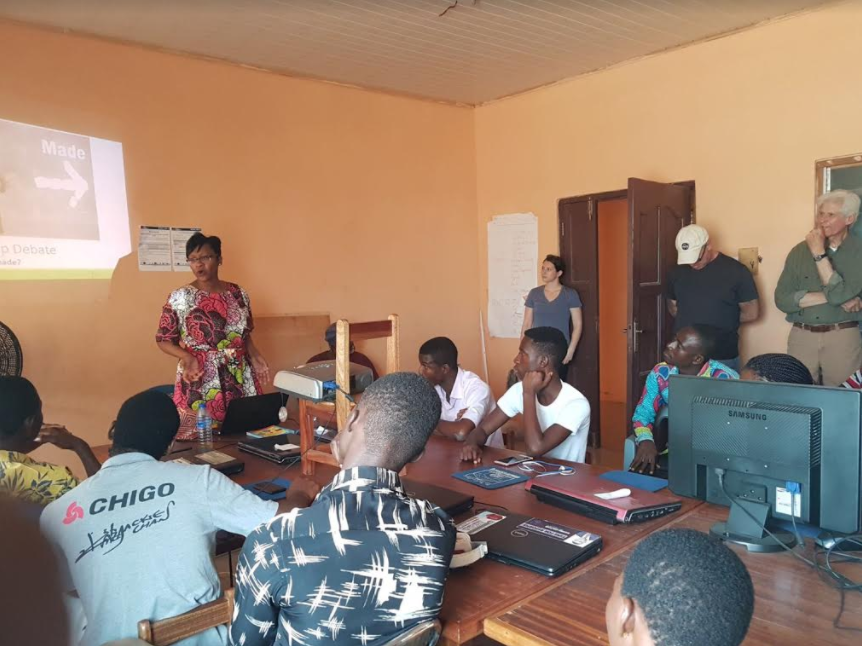
Share one story that makes each mission to Ghana worth the long journey and economic sacrifice.
The students make each visit worth the long journey. One particular student, Ayana Mustapha Salifu immediately comes to mind. His friends and the entire community have given him the name ‘Inspiration’. From a young age, he worked as a shepherd, cutting grass for goats and clearing up bushes at the back of houses in a small Muslim (Zongo) community in Senchi Ferry. As there was no electricity in his home, he slept in the mosque, which provided electric light to do his homework.
Despite his humble beginnings, he decided to begin a new chapter of his life through his educational pursuits. Mustapha studied everything he could learn about computers and sciences. Today, he is a senior at the University of Education, Winneba, where he has soared academically, inspiring his peers to chase their educational dreams. Traveling throughout Ghana with EVCOAfrica, he helps students improve math and reading skills. He also trains both teachers and students incorporating technology in teaching and learning on an offline server (R.A.C.H.E.L). This program brings together multiple curricula including Wikipedia, Khan Academy, and K-12 tutorials with lab videos for schools without internet access. It also includes 15,000 volumes of world literature. RACHEL thus affords equal access to high quality education. Through another similar program, Invictus, Mustapha connects students in the U.S. with Ghanaian students who require tutoring in math, science, and technology. World Possible, which connects the world’s learners through technology, has recruited Mustapha as its first Ghanaian CEO after finishing University. He is truly a global citizen in every sense of the word.
Where is the justice in your returning to Africa?
Returning to Africa is a Sankofa moment. Sankofa reflects the philosophy of “go back and fetch it.” It also means “we must return to the source.” With each visit, I recapture my cultural heritage and pride. I see a reflection of my ancestors who paved the way for my very existence through their hard work, fierce determination and unwavering faith.
I return to the source of my history and find renewed strength. I share this gift with others. I travel to Africa with my students and other community leaders. My hope is that they too will experience Sankofa by discovering our shared humanity and common destiny.
